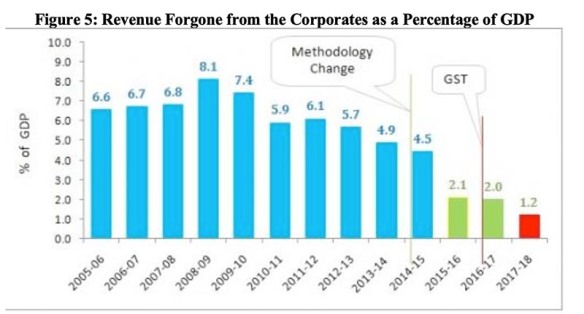Worker’s Tribute to Comrade Lenin
On His 150th Birth Anniversary
J. S. Majumdar
22 April 2020 marks the 150th birth anniversary of the greatest world working class revolutionary leader, Vladimir Ilyich Lenin (World calls him simply as Lenin).
Under his leadership, through October Revolution in 1917, a working class led State was established as ‘Soviet Union’ ushering in a Socialist State for the first time in the world history of human social development.
Taking forward the foundational work of Marx and Engels, Lenin analyzed the phase of capitalist development in early twentieth century; and characterized the same in his work as ‘Imperialism, the Highest Stage of Capitalism’; found the weakest link in the world capitalism in the imperialist stage; struck at it breaking the chain through October Revolution and established the first working class led state.
Under his leadership, the working class formed their own party with firm alliance with other exploited class, the peasantry, producing food for the humanity. This firm alliance is symbolised in the hammer and sickle permanently embossed in the red flag with revolutionary message. CITU inherited this symbol in its flag to uphold class-orientation of the trade unions and class struggle for the emancipation of the working class, the peasantry and other toiling sections in India and to carry on work for proletarian internationalism.
Under Lenin’s leadership, while fighting the imperialist countries’ encircled armed attacks to nip the nascent Socialist State in its bud; the working class, under Socialist State, embarked upon Socialist Construction, for the first time in human social history, as practical work in the existing and changing realities and as part of continuing class struggle; to provide minimum basis necessities for the citizens – food, health, shelter, education and social recreation – and also to remove the hitherto followed social disparities between human beings and classes in the distribution of national wealth, created by human labour, for its redistribution for social common good and in the development of the quality of human life for higher human social development for creating a society that ends exploitation of man by man.
In bourgeois democracy in the capitalist system, people are involved only in parliamentary elections to elect candidates of political parties for playing the role of ruling and opposition in the parliament. People have no role to play. Marx and Lenin has shown us that in essence it ensures continuation of capitalist class rule for profits while society functions under its framed rules in production, distribution, administration, marking guilty for violating these rules and giving painful punishment.
Under Lenin, the Socialist State ushered in a new form of democracy, The ‘Socialist Democracy’, the participative democracy involving all sections of the people in the process of decision making and in their implementation with the understanding that issue-based ‘criticism and self-criticism’ in existing material conditions are the essence of scientific debate to arrive at the correct decision and learning further from their implementation.
In Trade Union Democracy also there is nothing as ruling and opposition. The principles of socialist democracy are practiced in the working class organisations, in trade unions. That is why it is said that trade union democracy is the learning stage of Socialist Democracy.
Led by Lenin, the October Revolution has ushered in a new historical epoch in human social development characterized by four main fundamental social contradictions and struggle in the world today. Despite dismantling of Soviet Union and setbacks in several erstwhile east European socialist countries, the present epoch with contradiction between Capitalism and Socialism remains as the Central Contradiction with contradictions and struggle between the labour and capital, between the imperialists and third world countries and inter-imperialists as the main remaining valid in this epoch as proved during last 40 years in the world human social developments after dismantling of USSR.
Lenin characterised revolutionary stages; formulated ‘strategy’ for the entire specific stage and tactics according to the changing realities and developments during that specific stage.
Lenin firmly stood against all forms of reformism and collaborationism including opportunism, anarchism and Left extremism.
Lenin distinguished work of the working class party among the masses and of the mass organisations among the classes with different approach, understanding and agenda yet keeping linkages between the two.
Lenin always emphasised as priority task of establishing centres at every level of a revolutionary party and separately of its mass organisations.
Lenin always emphasised on propaganda – communist propaganda and on political agenda by the Party; and agitational propaganda by the mass organisations.
Three world events – devastation caused by inter-imperialist 1st World War, the working class led revolution in Russia unnerving the capitalist world, and wave of rejuvenated working class struggle along with heightening of national liberation movement in colonial countries; paved the way for creation of International Labour Organisation (ILO), the world’s only tripartite forum of labour, employers and governments, as part of the ‘Treaty of Versailles’ ending the WWI.
The preamble of ILO constitution states,
1. “Whereas universal and lasting peace can be established only if it is based upon social justice;”
2. “And whereas conditions of labour exist involving such injustice, hardship and privation to large numbers of people as to produce unrest so great that the peace and harmony of the world are imperiled;” and an improvement of those conditions is urgently required;
3. Whereas also the failure of any nation to adopt humane conditions of labour is an obstacle in the way of other nations which desire to improve the conditions in their own countries.
Even before October Revolution, Lenin studied Indian freedom movement and working class participation in it despite they not having any modern trade union or a working class party. When Lokmanya Bal Gangadhar Tilak was convicted and sentenced to six years’ imprisonment on charges of ‘sedition’; Lenin wrote, “The infamous sentence pronounced by the British jackals on the Indian democrat Tilak…this revenge against a democrat by the lackeys of the money-bag evoked street demonstrations and a strike in Bombay. In India, too, the proletariat has already developed to conscious political mass struggle – and, that being the case, the Russian-style British regime in India is doomed!”
October revolution also galvanized Indian working class quickly forming modern trade unions and establishing their first centre of Indian trade unions as ‘All India Trade Union Congress’ led by Lala Lajpat Rai giving orientation and momentum in India trade union movement and freedom movement.
The united struggle of the working class inspired by the formation of its trade union centre also gave rise to the formation of their own party – the Communist Party in India and also several currents of revolutionary movement paving way for formation and struggle of the peasants and other mass organisations side by side of the national freedom struggle.
On this occasion of 150th year of birth anniversary of the working class leader and revolutionary Comrade Lenin, we pay our respectful homage to Comrade Lenin and rededicate ourselves to follow his teachings for implementation to go forward in the working class revolutionary movement in India.
Red Salute to Comrade Lenin!
………………………
On His 150th Birth Anniversary
J. S. Majumdar
22 April 2020 marks the 150th birth anniversary of the greatest world working class revolutionary leader, Vladimir Ilyich Lenin (World calls him simply as Lenin).
Under his leadership, through October Revolution in 1917, a working class led State was established as ‘Soviet Union’ ushering in a Socialist State for the first time in the world history of human social development.
Taking forward the foundational work of Marx and Engels, Lenin analyzed the phase of capitalist development in early twentieth century; and characterized the same in his work as ‘Imperialism, the Highest Stage of Capitalism’; found the weakest link in the world capitalism in the imperialist stage; struck at it breaking the chain through October Revolution and established the first working class led state.
Under his leadership, the working class formed their own party with firm alliance with other exploited class, the peasantry, producing food for the humanity. This firm alliance is symbolised in the hammer and sickle permanently embossed in the red flag with revolutionary message. CITU inherited this symbol in its flag to uphold class-orientation of the trade unions and class struggle for the emancipation of the working class, the peasantry and other toiling sections in India and to carry on work for proletarian internationalism.
Under Lenin’s leadership, while fighting the imperialist countries’ encircled armed attacks to nip the nascent Socialist State in its bud; the working class, under Socialist State, embarked upon Socialist Construction, for the first time in human social history, as practical work in the existing and changing realities and as part of continuing class struggle; to provide minimum basis necessities for the citizens – food, health, shelter, education and social recreation – and also to remove the hitherto followed social disparities between human beings and classes in the distribution of national wealth, created by human labour, for its redistribution for social common good and in the development of the quality of human life for higher human social development for creating a society that ends exploitation of man by man.
In bourgeois democracy in the capitalist system, people are involved only in parliamentary elections to elect candidates of political parties for playing the role of ruling and opposition in the parliament. People have no role to play. Marx and Lenin has shown us that in essence it ensures continuation of capitalist class rule for profits while society functions under its framed rules in production, distribution, administration, marking guilty for violating these rules and giving painful punishment.
Under Lenin, the Socialist State ushered in a new form of democracy, The ‘Socialist Democracy’, the participative democracy involving all sections of the people in the process of decision making and in their implementation with the understanding that issue-based ‘criticism and self-criticism’ in existing material conditions are the essence of scientific debate to arrive at the correct decision and learning further from their implementation.
In Trade Union Democracy also there is nothing as ruling and opposition. The principles of socialist democracy are practiced in the working class organisations, in trade unions. That is why it is said that trade union democracy is the learning stage of Socialist Democracy.
Led by Lenin, the October Revolution has ushered in a new historical epoch in human social development characterized by four main fundamental social contradictions and struggle in the world today. Despite dismantling of Soviet Union and setbacks in several erstwhile east European socialist countries, the present epoch with contradiction between Capitalism and Socialism remains as the Central Contradiction with contradictions and struggle between the labour and capital, between the imperialists and third world countries and inter-imperialists as the main remaining valid in this epoch as proved during last 40 years in the world human social developments after dismantling of USSR.
Lenin characterised revolutionary stages; formulated ‘strategy’ for the entire specific stage and tactics according to the changing realities and developments during that specific stage.
Lenin firmly stood against all forms of reformism and collaborationism including opportunism, anarchism and Left extremism.
Lenin distinguished work of the working class party among the masses and of the mass organisations among the classes with different approach, understanding and agenda yet keeping linkages between the two.
Lenin always emphasised as priority task of establishing centres at every level of a revolutionary party and separately of its mass organisations.
Lenin always emphasised on propaganda – communist propaganda and on political agenda by the Party; and agitational propaganda by the mass organisations.
Three world events – devastation caused by inter-imperialist 1st World War, the working class led revolution in Russia unnerving the capitalist world, and wave of rejuvenated working class struggle along with heightening of national liberation movement in colonial countries; paved the way for creation of International Labour Organisation (ILO), the world’s only tripartite forum of labour, employers and governments, as part of the ‘Treaty of Versailles’ ending the WWI.
The preamble of ILO constitution states,
1. “Whereas universal and lasting peace can be established only if it is based upon social justice;”
2. “And whereas conditions of labour exist involving such injustice, hardship and privation to large numbers of people as to produce unrest so great that the peace and harmony of the world are imperiled;” and an improvement of those conditions is urgently required;
3. Whereas also the failure of any nation to adopt humane conditions of labour is an obstacle in the way of other nations which desire to improve the conditions in their own countries.
Even before October Revolution, Lenin studied Indian freedom movement and working class participation in it despite they not having any modern trade union or a working class party. When Lokmanya Bal Gangadhar Tilak was convicted and sentenced to six years’ imprisonment on charges of ‘sedition’; Lenin wrote, “The infamous sentence pronounced by the British jackals on the Indian democrat Tilak…this revenge against a democrat by the lackeys of the money-bag evoked street demonstrations and a strike in Bombay. In India, too, the proletariat has already developed to conscious political mass struggle – and, that being the case, the Russian-style British regime in India is doomed!”
October revolution also galvanized Indian working class quickly forming modern trade unions and establishing their first centre of Indian trade unions as ‘All India Trade Union Congress’ led by Lala Lajpat Rai giving orientation and momentum in India trade union movement and freedom movement.
The united struggle of the working class inspired by the formation of its trade union centre also gave rise to the formation of their own party – the Communist Party in India and also several currents of revolutionary movement paving way for formation and struggle of the peasants and other mass organisations side by side of the national freedom struggle.
On this occasion of 150th year of birth anniversary of the working class leader and revolutionary Comrade Lenin, we pay our respectful homage to Comrade Lenin and rededicate ourselves to follow his teachings for implementation to go forward in the working class revolutionary movement in India.
Red Salute to Comrade Lenin!
………………………
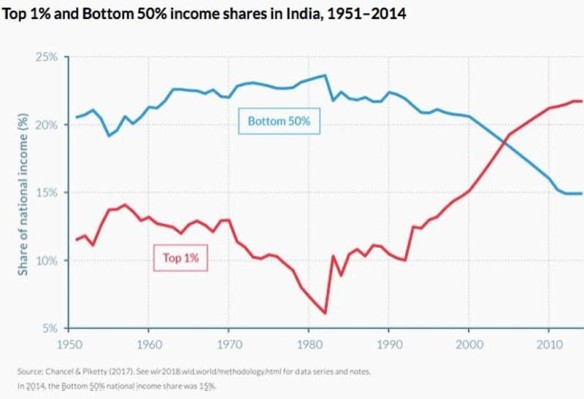
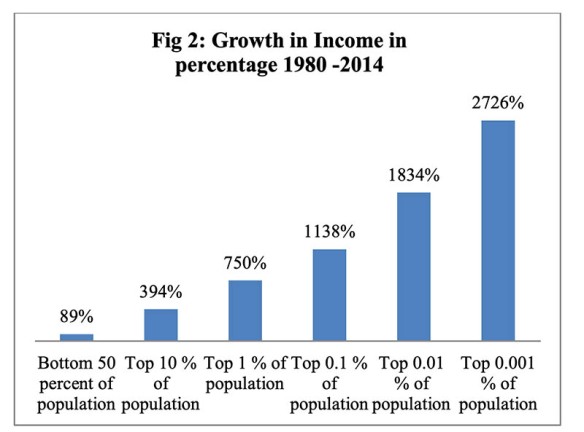
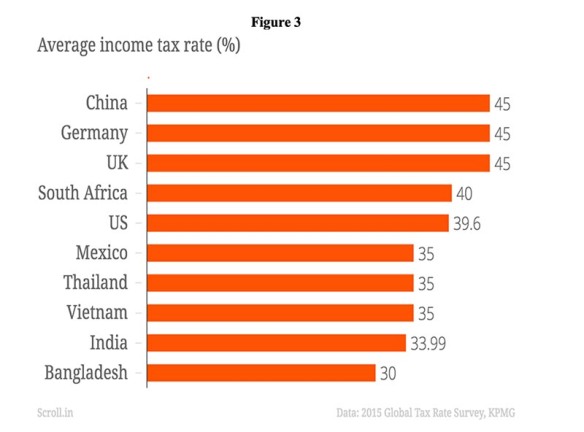
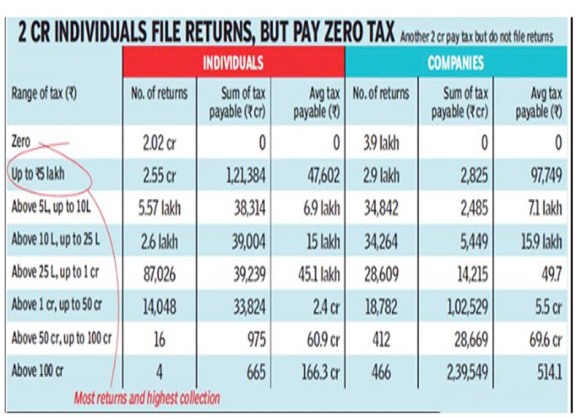 Figure borrowed from: ET Online|, Oct 23, 2018
Figure borrowed from: ET Online|, Oct 23, 2018